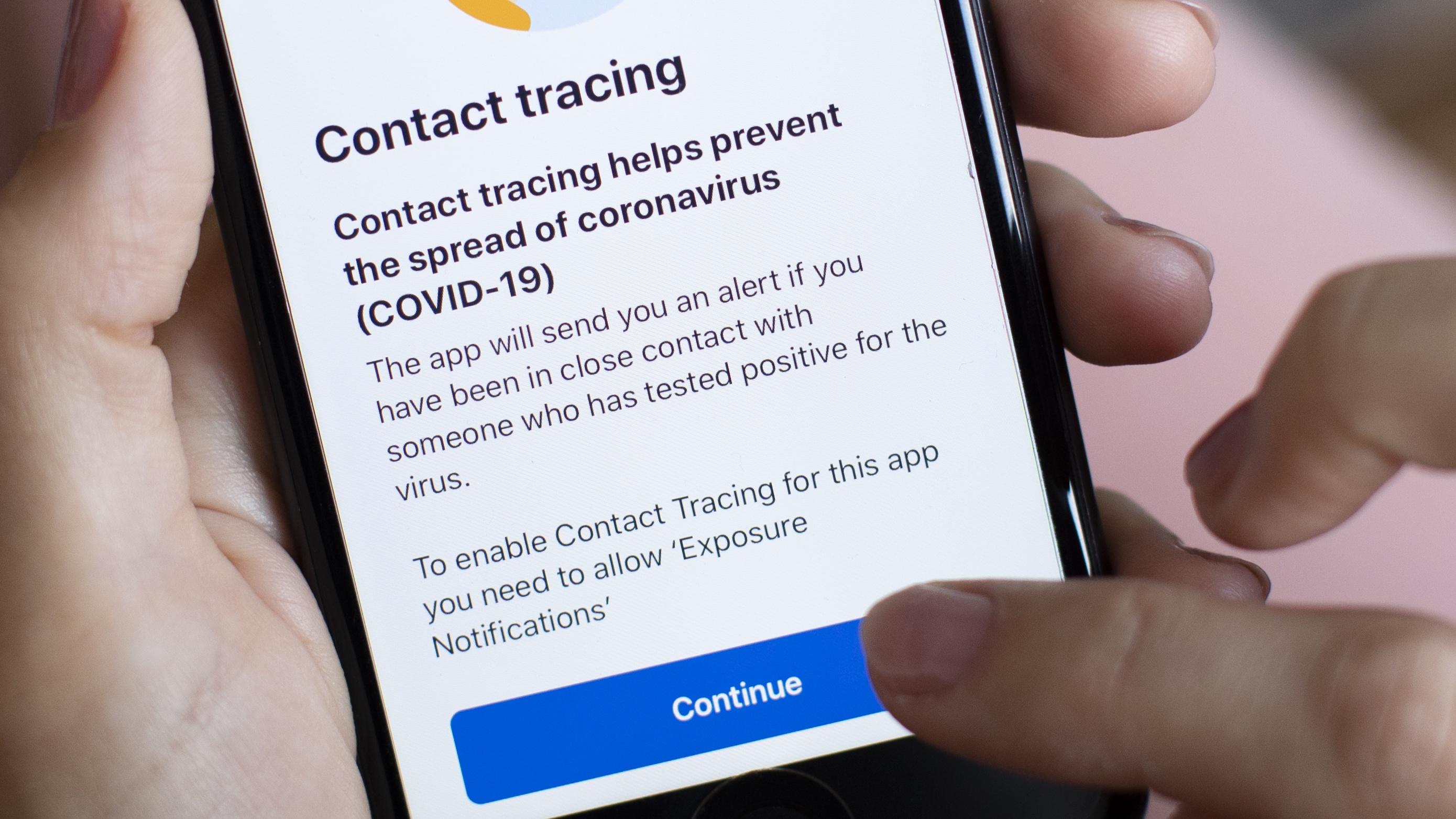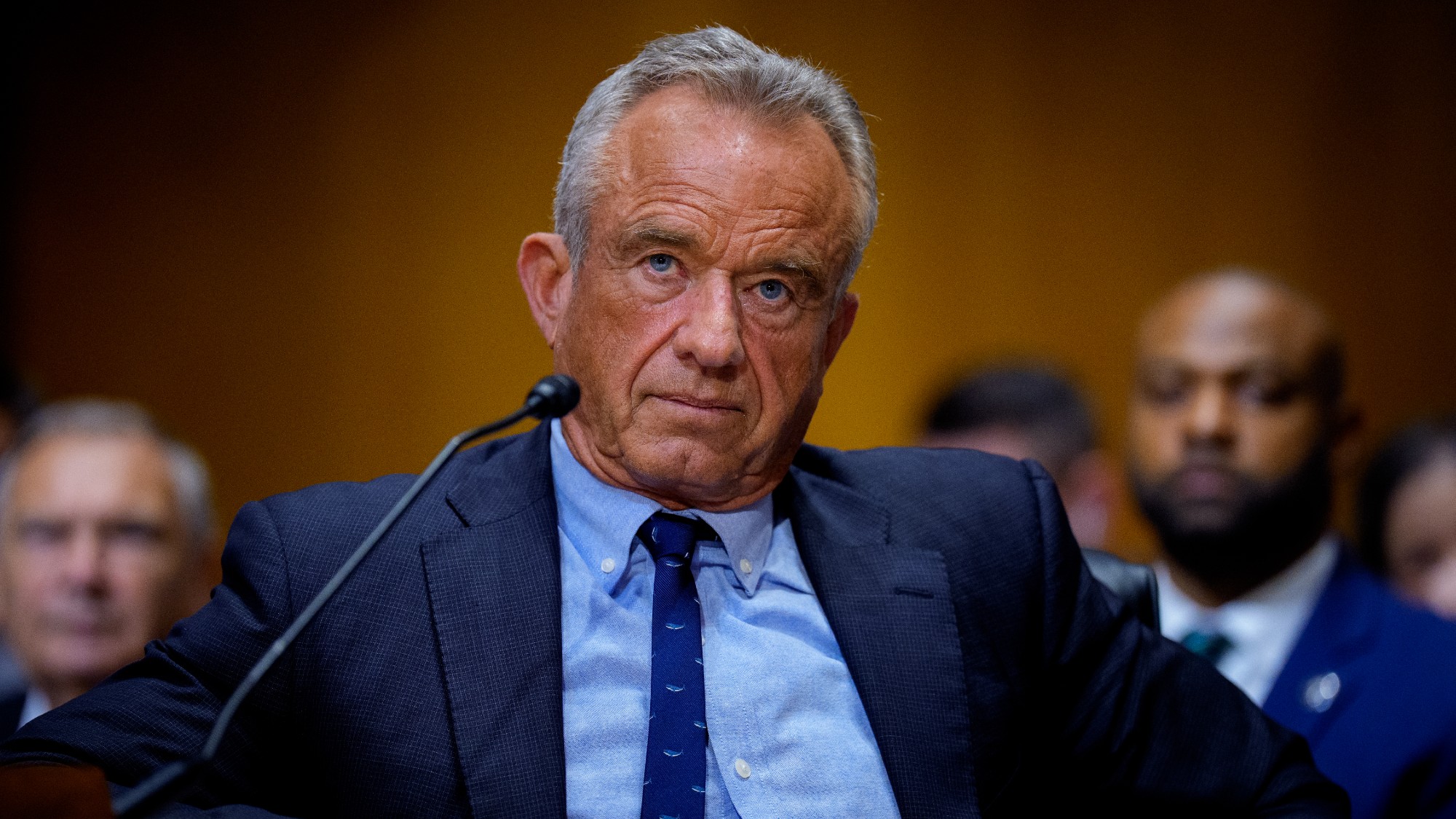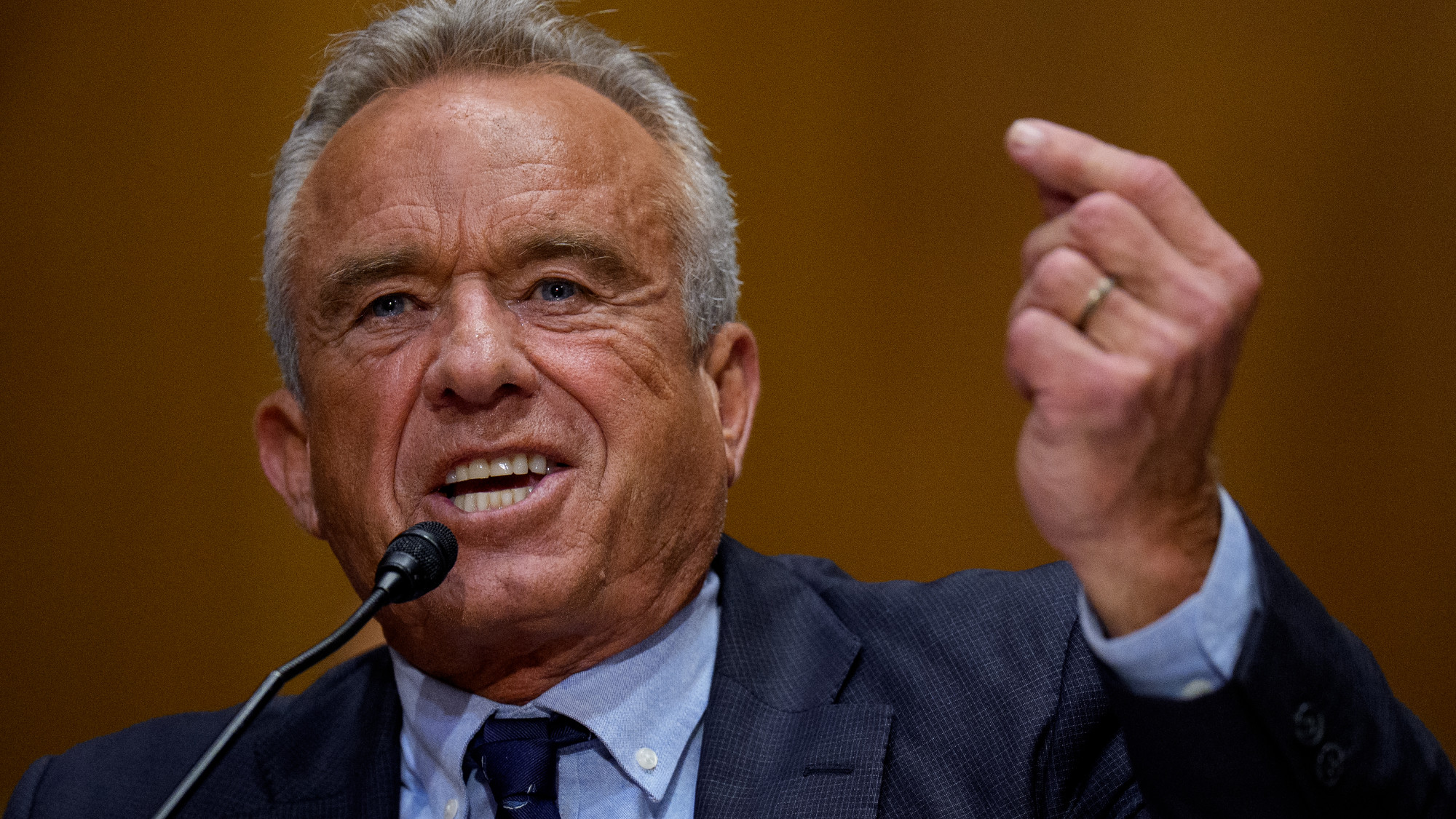Inside the plan to end the track-and-trace epidemic
Number of health workers in self-isolation now ‘significantly impacting’ patient care, NHS chief warns

A free daily email with the biggest news stories of the day – and the best features from TheWeek.com
You are now subscribed
Your newsletter sign-up was successful
Fears are rising of a “summer of chaos” after hundreds of thousands of Brits were forced into self-isolation by the NHS track-and-trace app, closing down businesses and affecting healthcare services.
The NHS app sent a record 520,194 alerts last week, telling users to quarantine for up to ten days because of close contact with someone who tested positive for Covid-19. An additional 337,695 people were told to isolate by NHS test and-trace, while 194,005 tested positive, meaning more than 1.6 million people went into self-isolation across the week.
NHS bosses have “warned that mass isolation of staff is harming patient care”, The Times reports, with businesses and factories “also said to be on the verge of shutting down” amid the sudden spike in people being warned to quarantine.
The Week
Escape your echo chamber. Get the facts behind the news, plus analysis from multiple perspectives.

Sign up for The Week's Free Newsletters
From our morning news briefing to a weekly Good News Newsletter, get the best of The Week delivered directly to your inbox.
From our morning news briefing to a weekly Good News Newsletter, get the best of The Week delivered directly to your inbox.
‘Pingdemic’
The number of new UK coronavirus infections hit 48,553 yesterday, the highest since mid-January and the start of the third lockdown, with the number of people contacted by the NHS app “likely to rise as infections increase”, The Times says.
The number of people being told to self-isolate is raising fears of a summer “pingdemic”, The Telegraph says, “with businesses, transport and schools brought to a standstill”.
“One in five workers in hospitality and retail are self-isolating” at the moment, the paper adds, with NHS hospitals already “reporting staff absences of up to 25% and bus and train services are frequently cancelled or delayed due to driver shortages”.
A free daily email with the biggest news stories of the day – and the best features from TheWeek.com
Chris Hopson, chief executive of NHS Providers, has warned that hospital bosses are finding staff isolations are already “impacting on their ability to deliver care”, adding: “They’re particularly worried about the growth in numbers of staff isolating as the rate of Covid community infections rises.”
Government figures also show the number of school children forced into isolation because others in their school “bubble” tested positive for Covid-19 stood at 624,000 in the week of 2-8 July.
Suggestions that many people are being made to quarantine unnecessarily have also been raised after reports that “neighbours are being told to self-isolate because the NHS app is ‘pinging’ people through walls”, The Telegraph says.
Some of the individuals contacted by the app are “being forced to self-isolate for ten days despite never having come into face-to-face contact with a positive Covid case”, the paper reports, with a source close to the track-and-trace team saying that the Bluetooth signal used is powerful enough to penetrate walls.
NHS boss Hopson has called for the issue of mass self-isolation to be treated “as a matter of urgency”, warning that providing daily care and dealing with the NHS backlog caused by the pandemic “is becoming increasingly difficult with large numbers of staff unable to work”.
Meanwhile, Steve Turner, assistant general secretary of Unite, told the Daily Mirror that “it is not an exaggeration to say factories are on the verge of shutting and that at some sites hundreds of staff are off work”, adding: “There will be public health consequences if test and trace becomes seen as a nuisance rather than an infection control measure.”
A Department of Health spokesperson defended the NHS app, saying that it “is doing exactly what it was designed to do - informing close contacts of someone who has tested positive for Covid-19 that they are at risk and advising them to isolate.
“As cases continue rising it is vital people are aware of their personal risk so they can make informed decisions on their behaviour to protect those around them.”
But ministers are understood to be mulling options to avoid outbreaks of mass isolation, with some suggesting that the app, “which monitors users’ closeness to each other and pings them if they have spent more than 15 minutes within two metres of someone who later tested positive”, should have its sensitivity tuned down as vaccination rates increase, The Guardian says.
‘Test to release’
From mid-August, anybody who has received two vaccine doses will be exempt from self-isolation. However, “ministers have reportedly been looking at bringing this forward, and at the option of making the app less sensitive”, says Politico’s London Playbook.
Sources told the site that any changes to the app are ��unlikely to happen any time soon”, with focus instead turning to a Public Health England pilot that is looking into the impact of a “test to release” scheme.
Under the plan, those told to self-isolate are sent two PCR tests and enough lateral flow tests to last throughout their quarantine period. The PCR tests are taken on the first and last day, while the lateral flow tests are used every day. Test negative with the lateral flow test and you are able to leave the house.
Cabinet Office minister Michael Gove is known to be taking part in the study, which is using 40,000 volunteers across the country who were contacted by test and trace and told to self-isolate.
To the backdrop of concern over mass self-isolation, Chief Medical Officer Chris Whitty has warned that England could be “plunged back into lockdown within five weeks as Covid cases surge during the third wave”, The Sun reports.
Speaking during a Science Museum webinar yesterday, Whitty said: “I don't think we should underestimate the fact that we could get into trouble again surprisingly fast. We are not by any means out of the woods yet on this, we are in much better shape due to the vaccine programme, and drugs and a variety of other things.”
Cautioning that the pandemic “has got a long way to run in the UK, and it's got even further to run globally”, he added: “We’ve still got over 2,000 people in hospital, and that number is increasing.
“If we double from 2,000 to 4,000, from 4,000 to 8,000, to 8,000 and so on, it doesn’t take many doubling times till you’re into very very large numbers indeed.”
The intervention will put pressure on ministers looking to reduce self-isolation numbers, especially Health Secretary Sajid Javid, who has been in post for just a few weeks and immediately “threw his weight” behind the 19 July unlocking, Politico says.
Boris Johnson has said the country must “learn to live with Covid”. But the end of regulations set to take place this Monday may mean the “pingdemic” is just beginning.
Joe Evans is the world news editor at TheWeek.co.uk. He joined the team in 2019 and held roles including deputy news editor and acting news editor before moving into his current position in early 2021. He is a regular panellist on The Week Unwrapped podcast, discussing politics and foreign affairs.
Before joining The Week, he worked as a freelance journalist covering the UK and Ireland for German newspapers and magazines. A series of features on Brexit and the Irish border got him nominated for the Hostwriter Prize in 2019. Prior to settling down in London, he lived and worked in Cambodia, where he ran communications for a non-governmental organisation and worked as a journalist covering Southeast Asia. He has a master’s degree in journalism from City, University of London, and before that studied English Literature at the University of Manchester.
-
 El Paso airspace closure tied to FAA-Pentagon standoff
El Paso airspace closure tied to FAA-Pentagon standoffSpeed Read The closure in the Texas border city stemmed from disagreements between the Federal Aviation Administration and Pentagon officials over drone-related tests
-
 Political cartoons for February 12
Political cartoons for February 12Cartoons Thursday's political cartoons include a Pam Bondi performance, Ghislaine Maxwell on tour, and ICE detention facilities
-
 Arcadia: Tom Stoppard’s ‘masterpiece’ makes a ‘triumphant’ return
Arcadia: Tom Stoppard’s ‘masterpiece’ makes a ‘triumphant’ returnThe Week Recommends Carrie Cracknell’s revival at the Old Vic ‘grips like a thriller’
-
 How corrupt is the UK?
How corrupt is the UK?The Explainer Decline in standards ‘risks becoming a defining feature of our political culture’ as Britain falls to lowest ever score on global index
-
 Childhood vaccines: RFK Jr. escalates his war
Childhood vaccines: RFK Jr. escalates his warFeature The health secretary cut the number of recommended childhood vaccines from 17 to 11
-
 The high street: Britain’s next political battleground?
The high street: Britain’s next political battleground?In the Spotlight Mass closure of shops and influx of organised crime are fuelling voter anger, and offer an opening for Reform UK
-
 Is a Reform-Tory pact becoming more likely?
Is a Reform-Tory pact becoming more likely?Today’s Big Question Nigel Farage’s party is ahead in the polls but still falls well short of a Commons majority, while Conservatives are still losing MPs to Reform
-
 Asylum hotels: everything you need to know
Asylum hotels: everything you need to knowThe Explainer Using hotels to house asylum seekers has proved extremely unpopular. Why, and what can the government do about it?
-
 Taking the low road: why the SNP is still standing strong
Taking the low road: why the SNP is still standing strongTalking Point Party is on track for a fifth consecutive victory in May’s Holyrood election, despite controversies and plummeting support
-
 Behind the ‘Boriswave’: Farage plans to scrap indefinite leave to remain
Behind the ‘Boriswave’: Farage plans to scrap indefinite leave to remainThe Explainer The problem of the post-Brexit immigration surge – and Reform’s radical solution
-
 RFK Jr.’s anti-vaccine crusade comes under fire
RFK Jr.’s anti-vaccine crusade comes under fireFeature Robert F. Kennedy Jr. faced a heated hearing as senators accused him of lying and spreading chaos